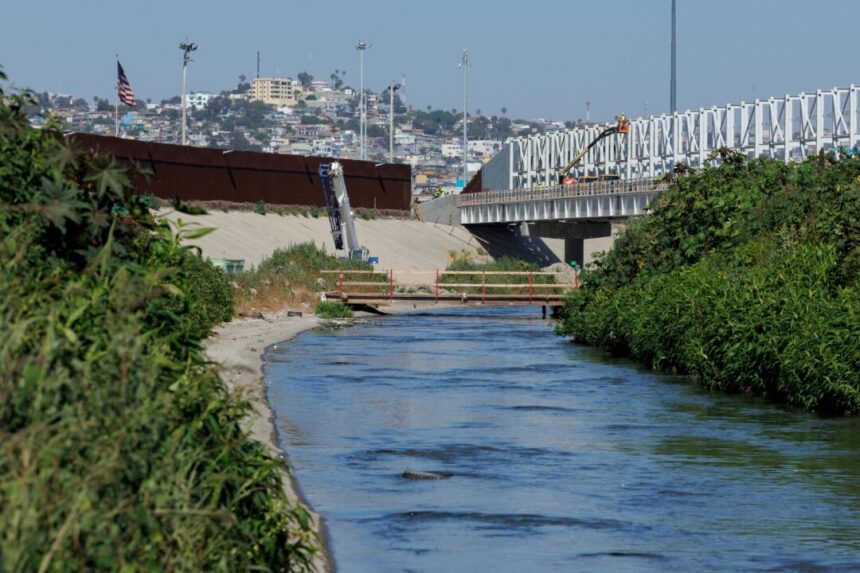Concerns have been raised by Members of Congress regarding the dangerous levels of toxic gas emanating from the Tijuana River, posing a threat to the health of San Diego residents. Federal lawmakers in California are urging for a state of emergency declaration along the southern border to address the increasing levels of harmful gases originating from the Tijuana River due to pollution in Mexico.
A recent study published in the peer-reviewed scientific journal Environmental Science & Technology in 2023 revealed alarming levels of sewage-associated bacteria in the Tijuana River, reaching hazardous levels. California House Representatives Juan Vargas, Sara Jacobs, Mike Levin, and Scott Peters have written a letter to President Biden and California Governor Gavin Newsom on September 9, highlighting the escalating situation over the past few years.
The lawmakers emphasized that new data indicates the presence of noxious fumes from the Tijuana River, with researchers warning of the dangers of prolonged exposure to these gases on human health. They noted that millions of gallons of untreated sewage, trash, and industrial waste flow daily from Mexico into the Tijuana River due to the malfunctioning San Antonio de los Buenos Wastewater Treatment Facility in Mexico.
The letter stated that the toxic fumes pose an immediate and significant threat to the health and safety of South San Diego residents, urging for additional support from the community. The representatives disclosed that San Diego’s beaches have been the most polluted in the country, leading to their closure for over 1,000 consecutive days.
Furthermore, the Navy had to suspend certain in-water training sessions in the area to protect their personnel from exposure to toxins. The lawmakers stressed the urgency of the situation, as recent data indicated unhealthy levels of hydrogen sulfide and hydrogen cyanide near the Tijuana River Valley, posing serious health risks to the surrounding communities.
In light of these findings, the California representatives are calling for a State of Emergency to be declared, enabling a coordinated government response to address the issue and allocate additional federal funding. They highlighted the importance of providing residents with air purifiers and testing equipment to safeguard against the imminent threat, drawing parallels to the response to the lead water crisis in Flint, Michigan.





